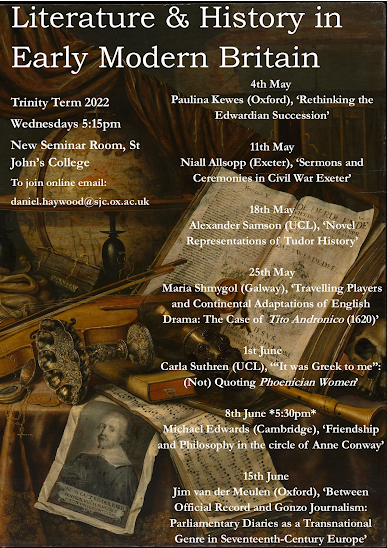TLRH | Early Modern History | The Popular Politics of Local Petitioning in Early Modern England Monday, 11 April 2022, 4 – 5pm 'The popular politics of local petitioning in early modern England' a seminar by Brodie Waddell (Birkbeck, Univ. of London) as part of the Trinity Centre for Early Modern History Research Seminar Series in association with the Trinity Long Room Hub. The Trinity Centre for Early Modern History promotes understanding of the culture, society, economy, religion, politics and warfare of early modern Europe. The Centre organises seminars, conferences and public lectures on the early modern history of Ireland, Britain and Continental Europe, as well as on relations between European and non-European states and cultures. Register here . Please indicate if you have any access requirements, such as ISL/English interpreting, so that we can facilitate you in attending this event. Contact: sflavin@tcd.ie Campus Location : Trinity Long Room Hub Arts and Humanit

